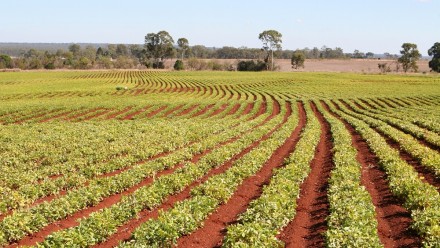Transforming an agricultural business in response to Climate Change
As the impacts of climate change become more apparent, the need to adapt to these changes within the agricultural sector is increasing. As well as making smaller changes to existing agricultural systems, there is a growing interest in large-scale, novel approaches. There are however, few examples of such adaptations to date.
A new study of one such example, co-authored by Professor Mark Howden, shows that this type of transformative adaptation can be fraught with difficulties and ultimately may be unsuccessful without the right science and institutional support. The research identifies critical factors for determining the success of this type of adaptation, highlighting the influence of both external factors and internal, organisational dynamics.
Adaptation can be either incremental, involving moderate adjustments which aim to maintain the existing systems, or transformational, involving novel, large-scale changes which result in the creation of a fundamentally new system.
This case study focussed on one agricultural company, Peanut Company of Australia (PCA), who responded to changing climatic conditions with both incremental and transformational approaches.
As declining rainfall, higher temperatures and, ultimately, drought damaged their south-east Queensland production base, PCA initially responded with incremental responses such as growing new peanut varieties. But, faced with the prospect of long-term climatic change, they also embarked on a transformative program of relocation, setting up an additional production base in Katherine, Northern Territory, which promised better access to water and irrigation under climate change. However within eight years, the challenges of implementing this strategy in tandem with a change in business model resulted in the PCA withdrawing from the NT.
These challenges included logistical difficulties and higher than expected start-up costs due to the ‘tyranny of distance’, a steep learning curve in establishing agriculture in a new area and environment, uncertainty about water allocation, global financial, pricing and marketing issues, limited resources to support new venture and ultimately a change of management and vision.
Overcoming such challenges requires a long-term strategic commitment and vision, a good business plan (including investment in research, training and staff) and the resources and time to implement it effectively.
Unfortunately, because of the inherent uncertainties of climate change and adaptation, it is difficult to predict how successful different adaptation pathways will be, particularly when relocation is involved. More research to create a practical adaptation decision-making toolkit would be useful for both the agricultural industry and policy makers.
Using learnings from this case study, the researchers propose a new model for how incremental and transformational adaptation interact and can be implemented simultaneously, with greater acknowledgement of the importance of both the external context and internal organisational dynamics.
Read the full article at doi:10.1007/s10584-016-1698-x
Jakku, E., Thorburn, P.J., Marshall, N.A., Dowd,A-M, Howden, S.M., Mendham, E., Moon, K., Brandon, C., (2016), ‘Learning the hard way: a case study of an attempt at agricultural transformation in response to climate change’ Climatic Change 137: 557.










